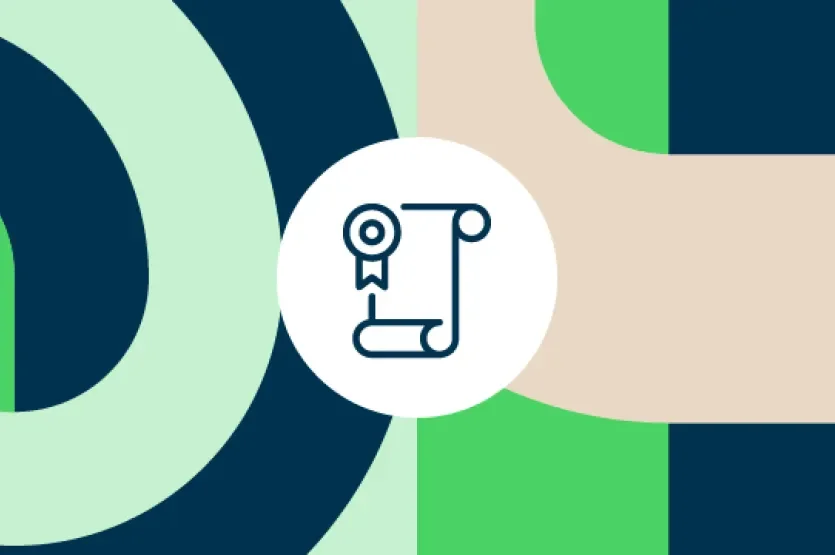Overview
The Doctorate in Psychotherapy (DPsych) is a Level 10 NFQ (240 credit) programme, delivered part-time over four years. The programme builds on candidates' current psychotherapy knowledge, competencies and skills to enable the development of an inquiry-based attitude to practice. Years one and two comprise taught modules that critically reflect on theories, practices and philosophies of psychotherapy, develop knowledge and practice of psychotherapy supervision, and advance understanding of research methodologies and skills. Candidates may apply to exit the programme with an MA in Psychotherapeutic Studies on successful completion of years one and two. Years three and four involve completion of a research project and thesis.
Why DCU
DCU People
Careers & Further Options
Careers
Graduates of the Doctorate in Psychotherapy have a unique and in-depth portfolio of transferable competencies to advance the field of psychotherapy practice, education, training and research. They have the capacity to make, implement and challenge practice decisions based on outcome research and clinical expertise, to conduct research that advances the boundaries of psychotherapy knowledge, and to contribute to the development of psychotherapy as an authority in their chosen area. This skill set makes candidates desirable in advanced psychotherapy practice, supervision, research and teaching settings.
"DCU graduates are highly sought after by employers. Our Graduates work in environments ranging from large multinationals to SMEs, family businesses and start-ups across every sector.
DCU Careers Service has a number of learning and development initiatives in place for our students, giving them the skills they need for a successful career path."
Entry Requirements
The intake for this programme is every 2 years. The next intake will be in September 2026
The Doctorate in Psychotherapy is an advanced post-graduate psychotherapy programme aimed at senior psychotherapy practitioners who are interested in developing their psychotherapy practice, supervision and research skills and knowledge.
Applicants must:
-
hold a primary degree or equivalent in a relevant area, such as in the humanities, health or education;
-
hold a Masters degree in Psychotherapy or equivalent;
-
have a minimum of 2 years post-training psychotherapy practice experience working with a broad range of psychological problems;
-
be personally suitable to undertake an advanced taught programme (e.g. motivated, reflective);
-
demonstrate evidence that they can undertake a research project at doctoral level;
-
successfully undertake a selection interview.
Due to the specialist nature of this programme, additional criteria may be used to assess suitability to undertake this programme. For further information, please contact the Programme Chair using the contact details above
Applicants who are applying on the basis of equivalence may be considered for admission to the course at the recommendation of the Programme Admissions Panel pending approval by the RPL Board (recognition of prior learning). Equivalence will be considered for one academic qualification only.
Programme Structure
The objectives of the course are to enable candidates to acquire:
- The capacity to integrate an advanced understanding of established and emerging research evidence and subjective personal inquiry to develop theory and inform innovative practice developments, including the use of technology
- A unique and in-depth portfolio of transferable competencies to advance the field of psychotherapy practice, supervision, education, training and research
- Skills to complete an original and innovative research study that makes a significant contribution to the field of psychotherapy, advances the boundaries of knowledge and locates candidates as an authority in their chosen area-field of interest
- The capacity to make, implement or challenge practice decisions based on a philosophical appreciation of psychotherapy, outcome research and subjective clinical experience in psychotherapy
- The ability to combine personal awareness, reflexivity and informed intuition with professional adeptness to respond effectively to the changing needs of a diverse spectrum of client groups in a range of political and cultural contexts
- An inquiry-based attitude to practice and the capacity for critical awareness and open analytical thinking that is founded on an integrative, flexible and robust theoretical framework
- The ability to exercise autonomy in practice initiatives in complex professional contexts, taking account of ethical and legal issues
- Proficiency in discussing and disseminating the contributions of emerging theoretical principles and practice developments within the social, cultural and political, academic, practitioner and educational communities
Time commitment:
|
Online/blended/in-person: |
In person |
|
Day/evening/weekend: |
Day time |
|
Number of days on campus per week: |
12 |
|
Typical days(s) of week on campus: |
Thursday, Friday and Saturday |
|
Typical hours per day on campus: |
6 |
|
Independent learning time - hours per week: |
13.5 |
|
Additional information: |
Teaching is normally delivered in five two/three day blocks per semester. Blocks are usually Thu-Fri/Thu-Sat every two/three weeks. Up to three of the 24 days across the year may be delivered online. |
Please note this information is indicative only and subject to change.
The programme is delivered part-time in blocks, to facilitate candidates' work commitments and travel requirements. Attendance requirements are subject to change. Currently, years one and two include ten two/three day teaching blocks per year, scheduled on average every three weeks between September and May. As years three and four involve research only, attendance is required for research supervision meetings, which are typically held monthly.
Fees and Funding
Fees
How To Apply
Applications are expected to open in late 2025 for the next intake in September 2026.
Applicants for the Professional Doctorate in Psychotherapy are required to complete a pre-application form to begin the application process.
Once this form has been reviewed, the applicant will be sent information via email about how to progress their full application to DCU.
For further information on the application process, please see here for a guide to the postgraduate research application.
The following will be required after approval of pre-application:
- Academic transcripts for each and every year of study (with English translation where applicable) or RPL candidates must submit evidence of previous training, transcripts and accreditations
-
Certified copy of parchment / degree certificate, with certified English translations;
-
Please outline relevant academic and professional experience under each section of the application form detailing prior academic achievements and psychotherapy practice experience relevant to their application;
-
Demonstration of research knowledge in the form of a written submission outlining previous research training, previous research undertaken, current area of interest for doctoral level research. You will be required to download / upload the relevant supplemental form as part of the application process.
-
Details for one academic referee and one professional referee. Your nominated referees will be requested as part of the application process.
- If applicable, provide evidence of competence in the English language as per DCU entry requirements. Please see link http://www.dcu.ie/registry/english.shtml.
Suitable applicants will be invited to undertake a selection interview.
Recognition of Prior Learning (RPL)
Applicants for the Professional Doctorate in Psychotherapy can also apply through the RPL route.
All RPL applicants are advised to contact the programme chair to confirm their eligibility before they apply
*NB All RPL applicants are required to submit a COVER SHEET along with their application under the Transcripts section of the portal, affirming their intent to apply for RPL. An example of a COVER SHEET can be found on this link.
RPL applicants are also required to submit a portfolio of evidence.
Application Submission Date
Applications are expected to open in late 2025 for the next intake in September 2026
Application Queries
For EU applicant queries, please visit https://www.dcu.ie/registry/eu-postgraduate-taught-admissions or email postgraduateadmissions@dcu.ie
For non EU applicant queries, please visit https://www.dcu.ie/registry/international-admissions-undergraduate-and-postgraduate or email internationaladmissions@dcu.ie
Application Deadlines
To be confirmed for late 2025.
Commencement of Programme
September 2026
Life On Campus
At DCU, our students can expect a unique campus experience. We are known for our excellent teaching and learning facilities, our active clubs and societies, and our great social and sporting facilities. All this makes DCU an exciting place to be.
DCU has three academic campuses; Glasnevin, St. Patrick’s and All Hallows (both in Drumcondra), all close to Dublin City centre.
They can be reached by public transport, Dublin Bus and Bus Éireann, with our Drumcondra campuses a ten minute walk from Drumcondra Train Station. Glasnevin is a 20 minute walk from St Patrick’s and All Hallows. They are also linked by Dublin Bus.
Each campus has a library (O’Reilly, Cregan and Woodlock Hall), study spaces, restaurants, and on-campus residencies. There are sports facilities on Glasnevin and St. Patrick’s, and there is a dedicated sports campus, St Claire’s, located near Glasnevin on the Ballymun Road.
DCU’s 19,000 students have access to exceptional teaching and learning facilities across our three academic campuses.
These include modern learning theatres, research centres, a new media and TV studio, radio/podcast studios, computer suites and advanced labs in the areas of Languages, Engineering, Physics, Chemistry and Biotechnology, as well as a Sports Performance centre and a training hospital ward. In 2021, we opened our first virtual reality ‘Leadership Lab’, which is located in our Business School.
We continue to improve and update our facilities. For example, construction of a new world-class STEM facility is underway on the Glasnevin campus. With capacity for an extra 3,000 STEM students, this facility will advance DCU’s international reputation for excellence in science and health, computing and engineering disciplines.
Studying in DCU isn’t just about course work. The university is rich in student life and activities.
There are more than 140 clubs and societies for students in DCU, with ‘Clubs & Socs’ days taking place on both the Glasnevin and Drumcondra campuses at the start of the academic year. They span everything from rugby to rock climbing, anime to jazz.
For many students, sport is an important part of the DCU experience. DCU’s Sports Complex boasts a 25 metre swimming pool, fitness centre gym, all-weather pitches and squash courts, as well as soccer, GAA and rugby pitches. DCU Dóchas Éireann, the university’s GAA club, is the largest third level Gaelic Games club in the country. Meanwhile, DCU Athletics has been Ireland’s highest achieving university club for many years. And DCU has dozens of other clubs to get involved in, from Archery to Weightlifting.
The Glasnevin campus is home to our purpose built, state-of-the-art student centre, The U, which serves the needs of a rapidly growing student body. Here, you will find the Student Leadership and Lifeskills Centre, performing arts and cultural spaces for students and the wider community, and the Entrepreneurship and Innovation Hub. Also located on our Glasnevin campus is The Helix, our renowned performing arts centre.
On our St Patrick’s campus, we have the Java Student Hub, a vibrant, warm and welcoming space where students can meet for coffee, play music, use the projector to watch events, or just relax. The walls of the Java Hub were designed based on the cultural history of St Patrick’s Campus, including the special references to the notable sporting history and history of the arts.
We have a number of academic, professional and social supports for students.
Student Advice & Learning Skills Centre - Offers a wide range of supports and services to students and advice
The Writing Centre - drop-in writing workshops for students through the academic year
Maths Learning Centre - provides maths support for students of all ability levels with maths modules
Student Learning - facilitate the transition from passive to active learning for students at DCU, by teaching study skills, nurturing critical thinking and building student confidence.
Careers work with students to help them on their professional journey into graduate employment.
Our student support team offers a comprehensive support programme, helping students make that all important transition into university life and focusing on building confidence and skills which are key to success at third level.

DCU Glasnevin Campus
FAQs
What are the attendance requirements of the programme?
The programme is delivered part-time in blocks, to facilitate candidates' work commitments and travel requirements. Attendance requirements are subject to change. Currently, years one and two include ten two/three day teaching blocks per year, scheduled on average every three weeks between September and May. As years three and four involve research only, attendance is required for research supervision meetings, which are typically held monthly.
Is DCU all one campus?
DCU is a multi campus university - the Glasnevin, St Patrick's and All Hallows campuses. The St Patrick's campus is where the Education courses are taught and some of the subjects from the BA Joint Honours degree. There is a 20-25 minute walk between the campuses but there are buses and bikes available to go between them also.
Click here to see maps of all of our campuses
If I'm studying on the St Patrick's campus, can I use the library and sports centre on the Glasnevin campus?
Yes, all facilities such as sports and accommodation are open for all DCU students to avail of.
Are there libraries in DCU and if they have wifi and work stations?
We have a brand new state of the art four floor library on our St. Patrick's Campus which complements the existing library on the Glasnevin campus. There is free wifi, work stations as well as desktop computers.
Does DCU provide accommodation?
DCU does have on-campus accommodation for undergraduate and postgraduate students, and you can find out more and apply via the Accommodation Office webpage.







